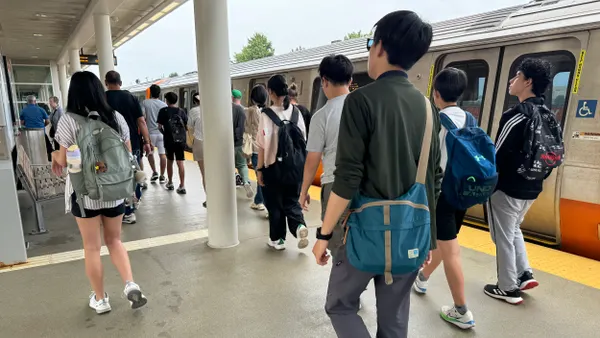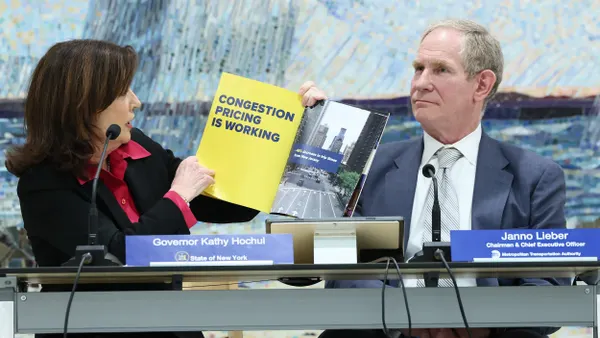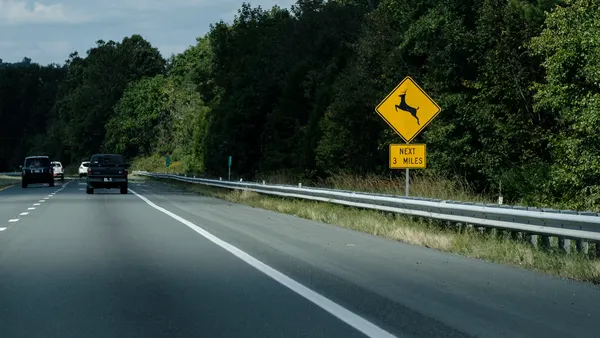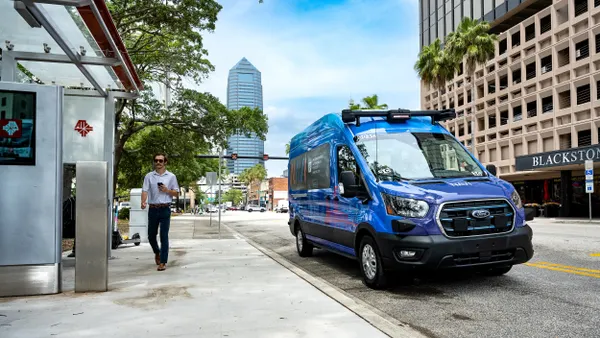Dive Brief:
- Boston is the latest city to have its transit information integrated into Uber's app.
- Users in Boston, Cambridge, Somerville and other surrounding areas will receive end-to-end trip options and directions that incorporate Boston area transit and Uber-owned mobility services. The app will display real-time information for Massachusetts Bay Transportation Authority (MBTA) modes — subway, bus, regional rail and ferry — in addition to the Logan Express airport shuttle.
- Earlier this year, Denver's Regional Transportation District was the first to partner with Uber on a transit integration, and customers there can now buy transit tickets directly through the Uber app. The company also has added London's transit information to its app.
Dive Insight:
This move advances Uber's work to position itself as a one-stop-shop for transportation. The transition to an all-encompassing mobility company began last year when Uber acquired dockless e-bike operator Jump.
Competitor Lyft got in on the diversification game with last year's acquisition of bike-share operator Motivate. Lyft also integrated several cities' transit information into its app, including Boston. Chicago, Denver, Los Angeles, Seattle, Santa Monica, CA and Washington, DC have the service as well.
Both mobility companies claim a desire to get more cars off the road by offering alternative transportation. But ride-hailing companies have faced mounting criticism for instead causing more congestion because so many drivers have come online in urban areas. Continuing to spread into non-vehicle arenas widens the companies' footprints while providing or partnering with additional mobility modes.
Critics say ride-hailing companies steal customers away from transit agencies. A growing number of cities are joining Chicago, Philadelphia, New York and Washington, DC in implementing extra taxes on ride-hailing companies. Chicago's former mayor, Rahm Emanuel, was one of the vocal city leaders in favor of such a tax; he appropriated the money toward transit, claiming the city was the first to do so.
The efforts both Uber and Lyft have made to add transit information into their apps could be a way to win favor with transit advocates.
Uber allowing Denver users to purchase transit tickets directly through its app appears to be another good faith effort. The feature makes it easier for customers to take transit for at least part of their trip, even if they don't use it for the entire journey. The company hasn't disclosed if Boston customers soon will have the feature as well.










